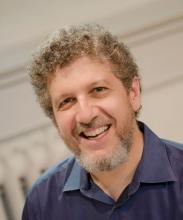When Glenn Hughes started the UW School of Drama in 1940, after many years of teaching theatre as part of the English Department here, he was heading up the only game in town. There were community theatres, had been Federal Theatre Project Theatres, as well as the usual road show tours. He both envisioned, and never could have imagined, that he’d be seeding one of the most vibrant theatre communities in the country—and doing it out of an experimental school at a state university.
Glenn Hughes both envisioned, and never could have imagined, that he’d be seeding one of the most vibrant theatre communities in the country
What a difference 75 years makes! As we head into the summer and look forward to the School of Drama’s 75th Anniversary Season (and as I complete my own first year here), I am particularly excited about our place in that theatre community. Almost every theatre in this city has either grown out of the U, been founded by alumni from here, bloomed side-by-side with us, or fed into the School’s growth by teaching or employing our students. And so, beginning this fall, as our way of paying tribute to Hughes’ legacy and the School’s history, we will do our best to honor and celebrate those theatres.
We’ve been thinking about these deep connections as “the bridges of Seattle theatre.” We also hope to build some new bridges, between the past, present, and future, as we reunite alumni, past faculty and leadership, those of us presently stewarding this great school, and the students who will determine the future of our city and field and art form. To do this, we’re going to be producing some of the newest and most diverse work of our time, and building on our potential as a laboratory for the theatre in Seattle and beyond.
In the true spirit of a research one university, we want to test a hypothesis: that along with the excellent and devoted faculty at the School, we are ideally situated for the theatres of Seattle to serve as master teachers to our students, to set an example of leadership and innovation, collaborative practice, and artistic vision.
Finally, in the true spirit of a research one university, we want to test a hypothesis: that along with the excellent and devoted faculty at the School, we are ideally situated for the theatres of Seattle to serve as master teachers to our students, to set an example of leadership and innovation, collaborative practice, and artistic vision. You’ll hear a lot more about all of this soon. In the meantime, thank you for reading and thanks for your support! See you in the fall!

